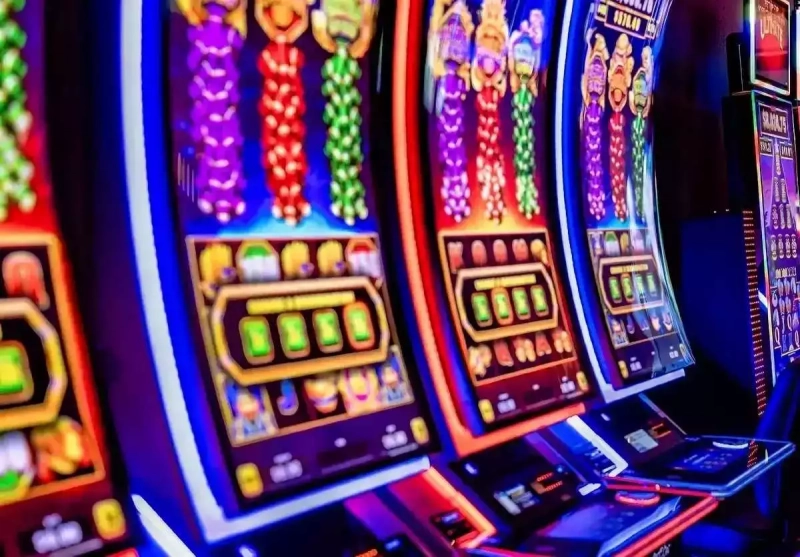The phenomenon of păcănele gratis and the parallels with demonstration matches in sport
Interest in cost-free entertainment has visibly accelerated. Two formats crystallize it: slots in demo mode and demonstration matches. They provide emotion, learning, and socializing without financial stakes, reducing the entry barrier and expanding the audience toward quality experiences.
At the heart of this behavior is the idea of “try before you pay.” Readers can test games, understand mechanics, and compare themes through păcănele gratis, while sports fans consume friendlies, open training sessions, and show events. The result is a more informed audience, which later decides whether it is worth moving to premium versions.
Why the public migrates toward no-cost formats

The public prefers safe beginnings: zero expense, personal pace, no pressure. This framework lowers anxiety and allows quality evaluation before any deposit. It’s the same reflex seen in video on demand or apps: quick access, then decision.
A major role is played by the transparency of mechanics. The free mode shows how a game works, what rhythm it has, and what type of bonus it offers. When the user feels control, willingness to return also grows. For iGaming, păcănele online gratis are an efficient onboarding channel: they provide context, education, and a matching filter between game and player.
On the experience level, democratizing access matters. Anyone can test titles, themes, or providers without fear of loss. This freedom supports more responsible consumption and a more informed dialogue about budget, style, and expectations.
What sport shows us about the appetite for “demo”
Sport confirms that the public is willing to watch the spectacle even without official stakes. Friendlies sell tickets, open new markets, and create conversation. For clubs, they are a testing ground; for fans, an entry gate. The transfer of principle to games is natural: familiarization without pressure builds loyalty.
By the same logic, presentation broadcasts and open training sessions educate, showcase novelties, and increase engagement. In games, păcănele gratis online reproduce this relationship: the public practices, learns timing, and acquires benchmarks. When the decision to invest comes, it is made on facts, not impulse.
Free experiences also generate social effects. People with different levels of skill can share recommendations, discuss tactics, or compare options. Communities grow healthier when entry is free and information circulates.
How the public uses demo mode in games
In iGaming, the demo is infrastructure, not a “bonus.” The player wants to understand, compare, and decide in an informed way. At this stage, clarity and ergonomics matter more than promises.
Before the list of best practices, let’s retain the essence: start with testing, evaluate the emotional rhythm of the game, and only then set a budget. Păcănele gratis demo provide exactly this path of safety and learning.
- Testing mechanics and rhythm: rounds, frequency of special events, and how longer sessions feel.
- Familiarization with volatility: how results vary in the short term and what that variation means for personal comfort.
- Comparing themes and features: “book,” megaways, classic-fruit, jackpots, re-triggers, special spins.
- Training discipline: pauses, limits, clarifying expectations about duration and intensity.
After a minimal set of trial sessions, the user knows what attracts them and what to avoid. Thus, the move to real money play — if it happens — is done deliberately, with clear limits and no surprises.
Practical guide and final message for readers
The public and media partners can use the “free” trend to improve the quality of decisions and dialogue. Below is a framework applicable both to content and gaming experience.
Before the list, let’s state the objective: useful information, clear path, safety. păcănele pe gratis is a tool for exploration, not a destination in itself.
- Educational content: explain paylines, RTP, bonus types, and differences between titles, in short, easy-to-read materials.
- Clean journeys: group demo games by themes and provide quick filters; reduce access frictions.
- Honest measurement: track time spent in demo and returns; optimize based on what the user retains.
- Visible safety: easy-to-set time and budget limits, clear messages about responsible gaming, and recommended breaks.
For the reader, steps are simple and direct: start with a few titles in free mode, including păcănele gratis, evaluate how you feel after 10–15 minutes, note which mechanics you like, and set firm limits from the start. If you decide to advance, do so only when you are comfortable with the rhythm and structure of the game.
In the end, the world of cost-free entertainment is a launch pad, not a trap. It offers information, context, and freedom of choice. And when the experience is worth it, users return on solid grounds. For the industry, it’s an invitation to transparency; for the public, it’s technology that gives back control.
Post Comment
Be the first to post comment!





